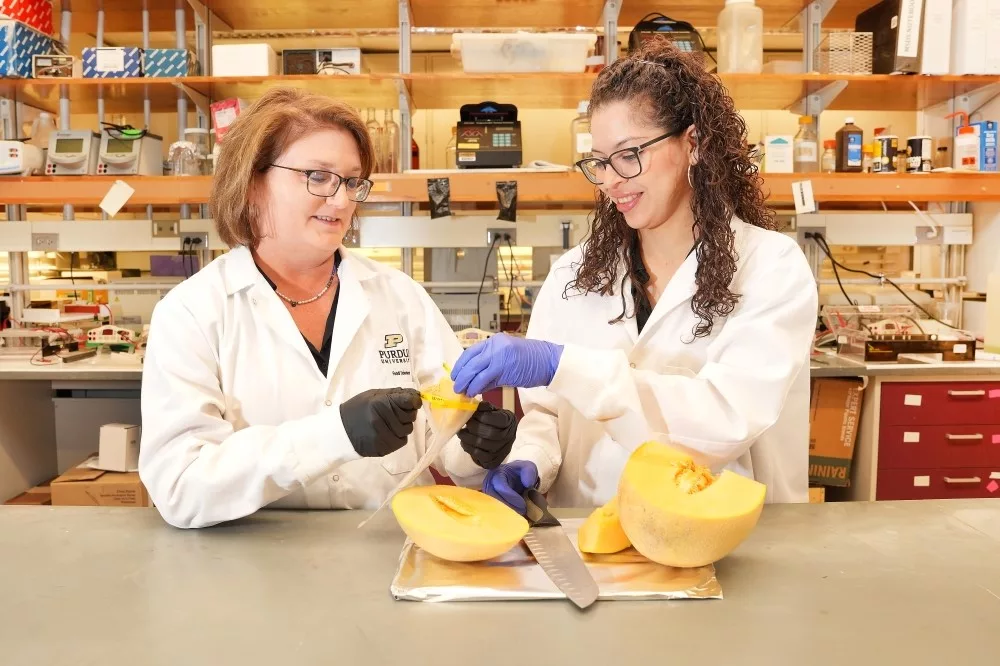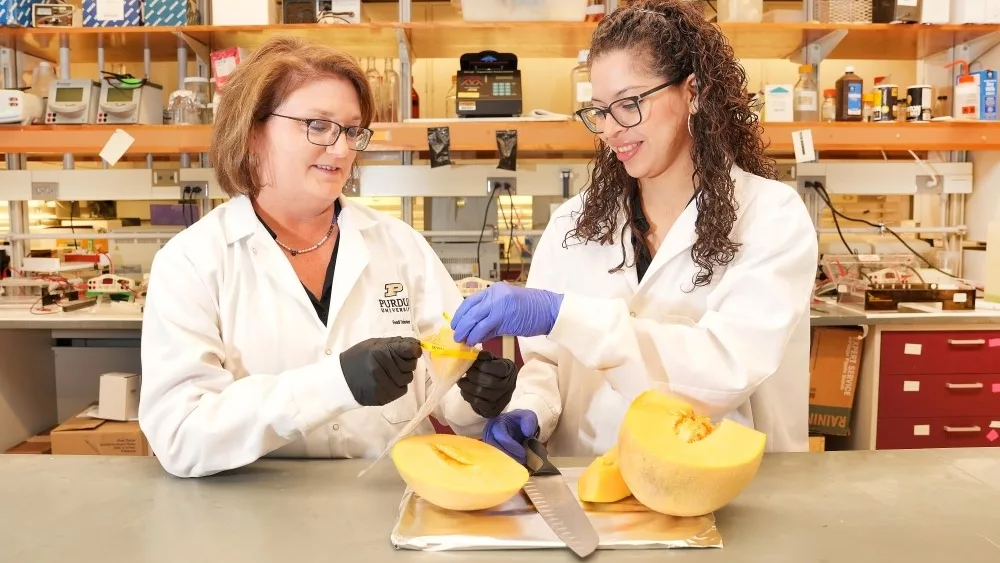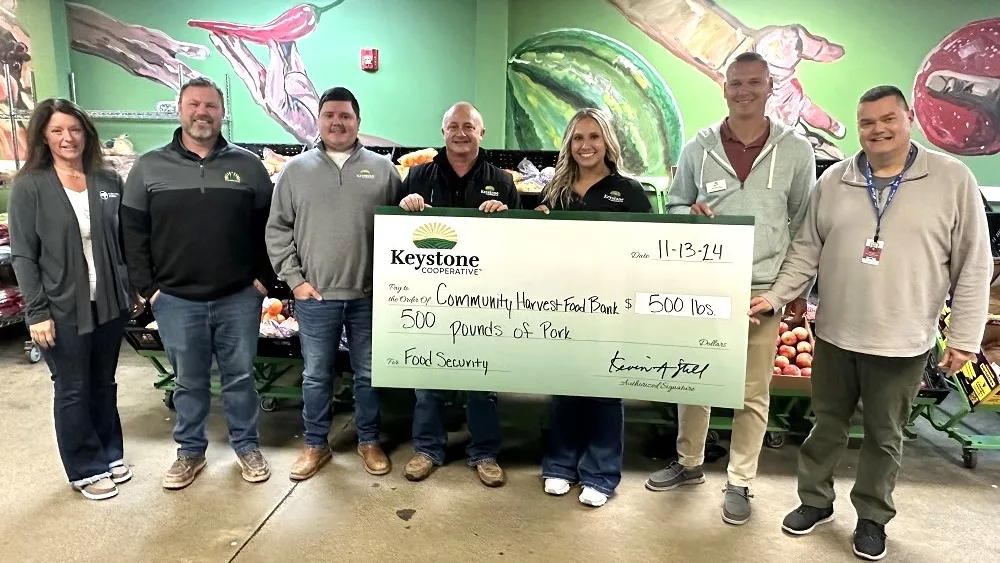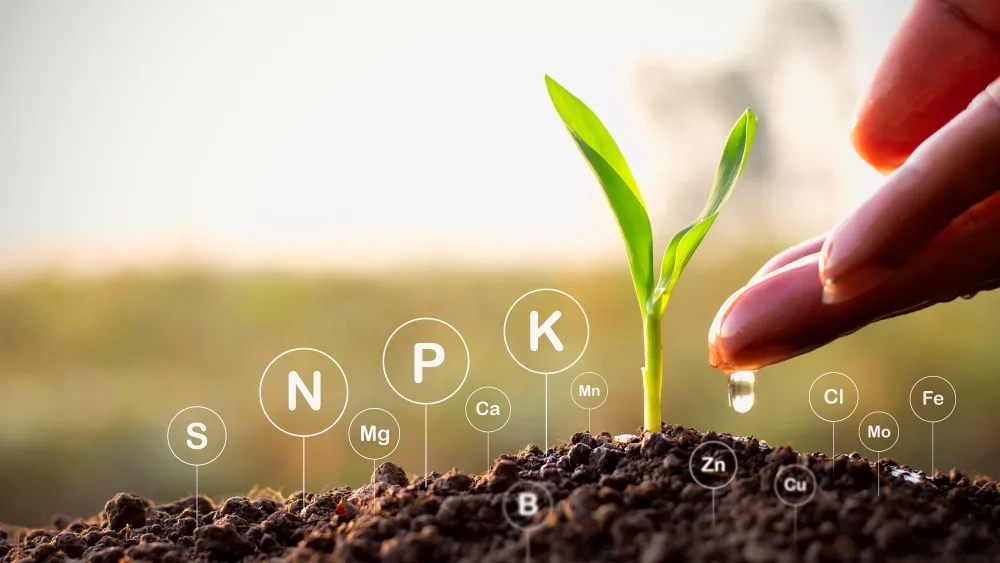
Purdue University and the U.S. Food and Drug Administration have embarked on a multiyear study of salmonella prevalence and persistence focused on the cantaloupe-growing region of southwest Indiana. Growers in the region are assisting with the statewide study to extend their decades-long focus on food safety.
The study also includes a farm in central Indiana, four Purdue-operated farms in northwest Indiana’s Tippecanoe County, and the Southwest Purdue Ag Center near Vincennes. Researchers are sampling air, soil, water and animal scat while also taking weather data to better understand what environmental conditions may encourage the survival, growth and spread of pathogens. They are even considering the possible role of bee pollination in the process.
In recent years, similar studies have been conducted following outbreaks linked to produce in Arizona, California and Florida and earlier outbreaks traced to the Delmarva Peninsula of Delaware, Maryland and Virginia.
Indiana’s cantaloupe production ranked sixth in U.S. as of 2018, according to the most recently available data collected by the U.S. Department of Agriculture. That year, Indiana growers planted 1,800 acres of cantaloupe with a production value of $8.6 million.
“The growers want to participate in this study because of their commitment to do everything they can to keep their produce as safe as possible,” said Amanda Deering, associate professor of fresh food produce safety. Deering leads Purdue’s part in the study with Scott Monroe, Purdue Extension food safety educator at the Purdue Extension Food Safety Training Hub near Vincennes. Purdue’s Food Entrepreneurship and Manufacturing Institute students are also helping with the research at Purdue’s Animal Sciences Research and Education Center, Student Farm and the Throckmorton Purdue Agricultural Center, which includes Meigs Farm.
The new study focuses on how pathogens move in the environment and may contaminate produce before harvest. Contamination can also arise during transportation or at the retail outlet. Most people handle several cantaloupes before making their selection, transferring whatever was on their hands to the produce, Deering noted. “Do you ever take the first cantaloupe you touch out of the bin? Probably not,” she said.
Indiana cantaloupe growers have a history of tapping the expertise of Deering, Monroe and other specialists from the Safe Produce Indiana team in Purdue Extension, who work closely with the Indiana State Department of Agriculture and the Indiana Department of Health to address food safety issues in Indiana.
Last year Deering’s team tested various cantaloupe sanitizers in her lab with human pathogens. Indiana growers wash their produce in sanitizer before sending it to a packing house. Deering’s team found that a combination of sanitizers worked better than what the growers had been using
“I gave them the data, and they all switched to the new sanitizer treatment,” she said. “It’s their livelihood, so they take it seriously.”





